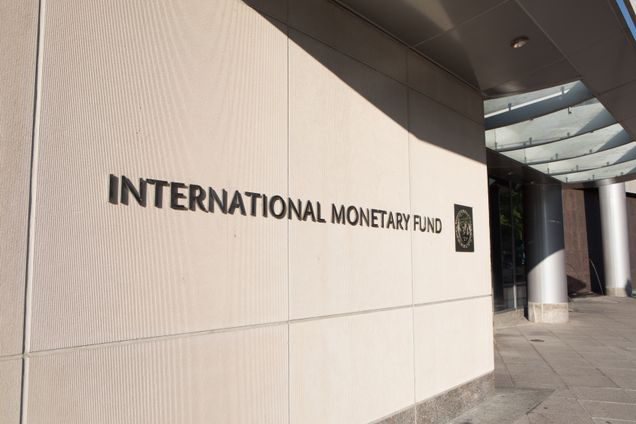GDP Center Round-up: 2025 IMF/World Bank Spring Meetings

By Samantha Igo
From April 21-26, 2025, all eyes in the global economic governance space will turn to Washington, DC as the 2025 International Monetary Fund (IMF)/World Bank Spring Meetings kick-off amid a rapid-fire news cycle, tumultuous geopolitical environment and ongoing calls for structural reform to the international financial architecture.
While expectations for meaningful progress at these meetings are tepid at best given the intractable political landscape, they simultaneously represent a critical inflection point for the Bretton Woods Institutions. Developing country dissatisfaction with the Fund and World Bank are reaching an apex as a silent debt crisis stifles progress on climate and development, voice and representation remain staunchly skewed towards Global North countries, and the climate finance developing countries need has yet to materialize in the scale necessary to both re-build from climate catastrophes and build toward resilient, sustainable economies. The legitimacy of these institutions hang in the balance and if they do not show that they are truly multilateral institutions responsive to their full memberships, developing countries could increasingly turn to alternatives that better suit their needs.
Despite the challenging landscape, however, there are paths forward that international financial institutions, including the IMF and World Bank, can take. June 2025 marks the deadline for proposing options for quota reform at the IMF, which could reshape members’ access to financing, allocation of Special Drawing Rights (SDRs) and voting power. There is also an incipient revival of partnerships between multilateral and national development banks (MDBs and NDBs) that could be leveraged to substantial gains with the right frameworks and policies in place. And the IMF is approaching a comprehensive review of its Resilience and Sustainability Trust (RST), which is designed to provide concessional, longer-term financing to help low- and vulnerable middle-income countries address key structural challenges such as climate change and pandemic preparedness. This review presents a vital opportunity to make adjustments to the promising financing tool to ensure it delivers on its full potential for climate vulnerable countries.
Ahead of the Spring Meetings, the Boston University Global Development Policy Center has produced a suite of research on a new IMF quota formula, disaster-triggered financing mechanisms, MDB-NDB collaboration, and more. Below, see highlights of the latest research.
A Challenging Imperative: IMF Reform, the 17th Quota Review and Increasing Voice and Representation for Developing Countries

Quotas are at the core of the IMF’s finances and governance, and this year, the IMF stands at a crossroads as it is set to undergo its 17th General Quota Review (GQR). Without an increase in quotas, the IMF will struggle to fulfill its mission of preventing and mitigating balance of payments crises and ensuring financial stability. However, applying the quota formula—agreed upon by major shareholders and the broader membership in 2008 (under the 14th GQR)—appears politically unfeasible in the current environment.
As the 17th GQR approaches, IMF members face a difficult proposition: how can they boost financial resources for crisis response while also reforming governance to maintain legitimacy and credibility?
A new report explores ways to better align the 17th GRQ with the growing economic importance of emerging market and developing economies (EMDEs), while also increasing their voice and representation in IMF governance. They examine the trade-offs between different options for achieving this.
The report shows that to find a balance between maximizing the representation of EMDEs as a group and pursuing a politically feasible proposal, it is necessary to modify the current quota formula. Read the report and read the summary blogpost.
Strengthening the International Monetary Fund’s Resilience and Sustainability Trust to Promote a Just, Global Climate Transition: Early Evidence from Barbados and Jamaica

As the only multilateral, rules-based institution responsible for promoting global macroeconomic and financial stability, the IMF has a central role to play in helping its member countries urgently unlock and mobilize substantial and affordable climate financing.
A new technical paper for the Task Force on Climate, Development and the IMF provides an early-stage evaluation of the Resilience and Sustainability Facility (RSF) experiences of the two pilot Caribbean Small Island Developing States (SIDS) – Barbados and Jamaica – and draws lessons for the design of future RSF-supported programs to ensure they adapt to the specific and unique circumstances of IMF member countries.
The paper highlights that the comprehensive review of the RST planned for 2026 presents a vital opportunity for the IMF to not only show faster and bolder leadership to make the RST a transformational part of the global financial architecture, but also to ensure the Fund’s future relevance in promoting a just, global climate transition. Read the technical paper and read the summary blogpost.
Back to the Future: How the Pre-OECD Global Tax Landscape Offers Lessons for Today

At a time when developing countries need to ramp up investment to achieve development and climate goals, tax revenue is particularly urgent. A global tax system weighted towards multinational companies makes collecting this revenue more challenging. International cooperation can help correct these imbalances, but a major question is how and where these negotiations should occur: the Organization for Economic Cooperation and Development (OECD) or the United Nations (UN)?
A new policy brief by Steven Dean, Erin Ryu and Danna Lopez-Flores traces the history of international tax policy, showing that the OECD-dominated, multinational corporation-friendly tax policy that has taken hold is not inevitable. Examining pre-World War II history, when the US supported the reconstruction of Europe, this brief shows that a more collaborative approach is possible. In the 21st century, developed countries could learn from history to support countries in the Global South, helping them climb the development ladder. Read the policy brief.
Blending from the Ground Up: Multilateral and National Development Bank Collaboration to Scale Climate Finance

International financing for development has persistently fallen short of developing country needs, and there is broad agreement that development finance institutions (DFIs) will have to assume a more central role in helping to mobilize more resources, both international and domestic, for development and climate goals.
“Blending from the ground up” is a call to establish partnerships across public finance institutions that are clearly aligned with the host government’s development and climate change priorities and focus on transformational programs and projects that would not be realized in the absence of public support. This requires mobilizing private capital which is risk-tolerant, patient as well as willing to share risks and rewards of investments in a policy environment which is enabling but also regulated and accountable to citizens.
A new report utilizes five case studies to examine how partnerships between NDBs and MDBs have worked in practice. The case studies focus on green energy and provide the empirical foundation for identifying the opportunities and barriers to scaling up MDB-NDB collaboration. Read the report and read the summary blogpost.
Disaster-Triggered Financing Mechanisms Must Provide More Relief for Myanmar

On March 28, 2025, Myanmar suffered a magnitude 7.7 earthquake, which caused devastating loss of life and property. As survivors continue to tally up the damage from this shock, this much is clear: Myanmar needs a considerable amount of short-term financial assistance now and, moving forward, billions of dollars more in reconstruction funding, most of which will have to come from abroad.
While the initial humanitarian response from foreign governments is commendable, international financial institutions (IFIs) like the World Bank and the IMF also have a role to play in supporting rebuilding efforts in Myanmar.
A new blogpost from Kofi Gunu, Marina Zucker-Marques and Rishikesh Ram Bhandary argues that these institutions can provide short-term financing that eases the fiscal stress on the country’s government and presents three ways to greatly improve disaster support. Read the blogpost.
A Golden Opportunity: Selling a Small Share of the IMF’s Gold Reserves to Replenish the Catastrophe Containment and Relief Trust

The IMF holds 90.5 million ounces of gold on its balance sheet, a legacy from its founding in 1944, when member countries paid their quotas in gold. This idle gold is sitting on the IMF’s balance sheet at a historical cost of $45 per ounce, compared to $2,600 per ounce on global markets.
Meanwhile, the Fund’s Catastrophe Containment and Relief Trust (CCRT), which provides grants to eligible countries to help cover debt service payments after a natural disaster, is in desperate need of replenishment and reform. Currently, only 30 members qualify for CCRT access, while the cash balance hovers at approximately just $103 million.
A recent policy brief from Marina Zucker-Marques and Rishikesh Ram Bhandary explores how CCRT access could be expanded and replenished using the proceeds of an IMF gold sale to meet the needs of climate-vulnerable developing countries.
The authors find that by selling just 4 percent of its gold, the IMF could provide debt relief for 86 low-income and climate-vulnerable countries. Read the policy brief.
Closing the Global Crisis Finance Gap: Why and How the IMF Should Address Weaknesses in the Global Financial Safety Net

Many low- and middle-income countries are struggling with deteriorating debt sustainability and external shocks, including the economic repercussions of the COVID-19 pandemic, Russia’s war in Ukraine and the tightening of monetary policy in advanced economies. Amid these developments, it is crucial to explore whether the world – and its most vulnerable countries – is well prepared to buffer balance of payments difficulties caused by systemic shocks.
In a recent policy brief, Laurissa Mühlich and Marina Zucker-Marques explore the status of Global Financial Safety Net (GFSN) and demonstrate how structural inequalities in the GFSN could be reduced by reforming facilities and funding of the IMF. Read the policy brief.
*
Never miss an update: Subscribe to the Global Economic Governance Initiative newsletter.